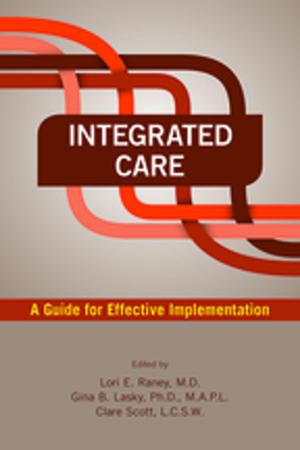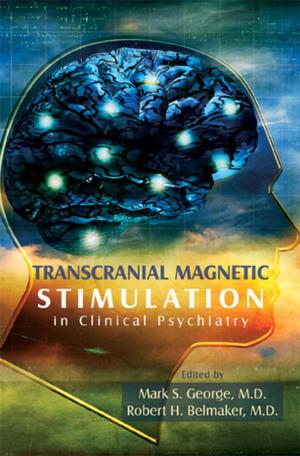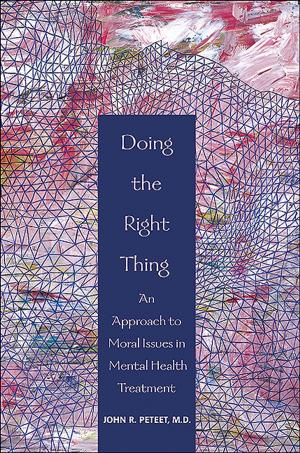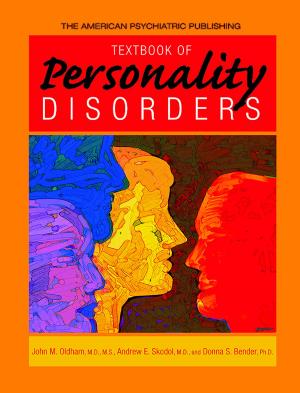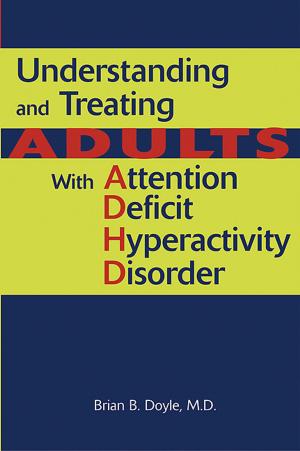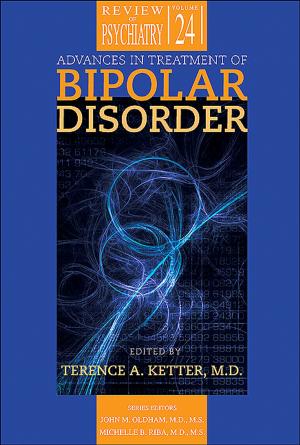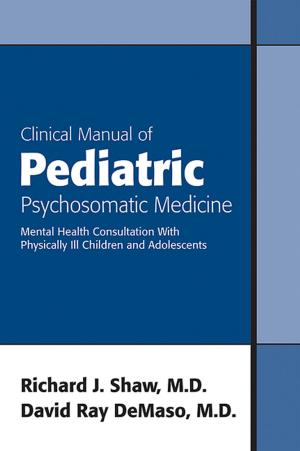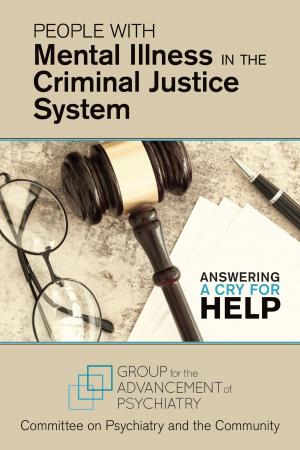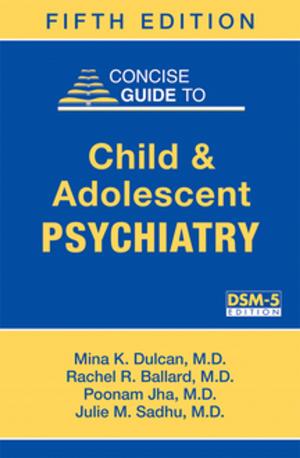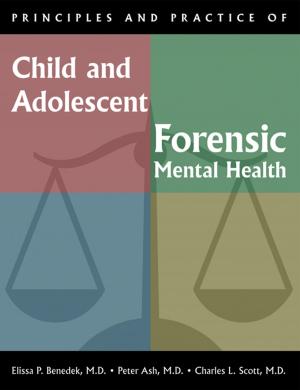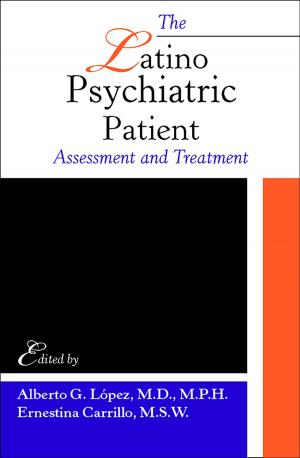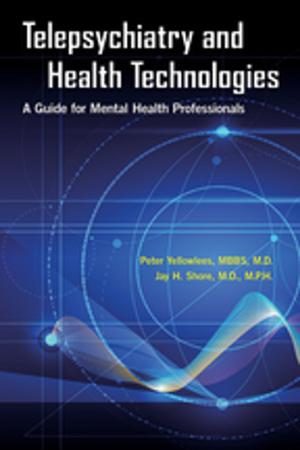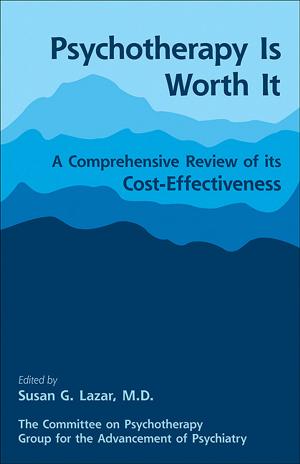Pathological Gambling
A Clinical Guide to Treatment
Nonfiction, Health & Well Being, Medical, Specialties, Psychiatry| Author: | ISBN: | 9781585626953 | |
| Publisher: | American Psychiatric Publishing | Publication: | May 20, 2008 |
| Imprint: | American Psychiatric Association Publishing | Language: | English |
| Author: | |
| ISBN: | 9781585626953 |
| Publisher: | American Psychiatric Publishing |
| Publication: | May 20, 2008 |
| Imprint: | American Psychiatric Association Publishing |
| Language: | English |
The past five years have witnessed dramatic advances in research on pathological gambling -- a diagnosis often overlooked by clinicians who are unaware not only of the personal and social consequences of pathological gambling, but also of the possible treatment options. Today, clinicians can choose from an array of treatment options to substantially improve the lives of patients with this disabling illness.
Eloquently attesting to this extraordinary progress, this remarkable clinician's guide comprises the most extensive coverage on public health, clinical characteristics and treatment, psychotherapy and psychopharmacology, and interventions for adolescents, adults, and older adults. Written by the world's leading researchers on psychiatric aspects of gambling, this truly comprehensive volume discusses how to diagnose pathological gambling and provides the tools to do so. Here, 32 experts detail the clinical phenomenology, etiology, and treatment of pathological gambling, highlighting the current clinical approaches most likely to lead to early identification, symptom remission, and improvement maintenance.
Useful appendixes provide specific tests, scales, and diagnostic criteria following four major sections of the book: Public Health and Epidemiology discusses prevalence and definitions of recreational, problem, and pathological gambling; the relationship between the different levels of gambling severity; and gambling's effects on societal, familial, and individual health and well-being. Clinical Characteristics covers the symptoms and sequelae of pathological gambling and the differences among adolescents, older adults, and men and women, and shows that pathological gambling -- rather than being categorized as a single disorder -- shares important features with many disorders, among them obsessive-compulsive spectrum disorders, affective spectrum disorders, addiction, and impulse-control disorder. Etiology details the realms of both psychology (behavioral, cognitive, and dispositional theories) and neurobiology (noradrenergic, serotonergic, dopaminergic, and opioidergic systems as well as familial and inherited factors) to explain the behavior of pathological gambling -- knowledge that may prove useful in understanding a range of addictive and impulsive disorders. Prevention and Treatment emphasizes the vital role of the clinician in prevention efforts, including a prevention strategy tailored specifically for adolescents and young adults; discusses a variety of behavioral and pharmacological interventions for patients including self-help and professional-based interventions for family members; and concludes with assessments useful in diagnosing pathological gambling and monitoring symptom change.
Psychiatrists, psychiatric researchers, and other mental health care professionals will welcome this book as their most up-to-date source for invaluable knowledge about and research from the world's recognized experts on pathological gambling.
The past five years have witnessed dramatic advances in research on pathological gambling -- a diagnosis often overlooked by clinicians who are unaware not only of the personal and social consequences of pathological gambling, but also of the possible treatment options. Today, clinicians can choose from an array of treatment options to substantially improve the lives of patients with this disabling illness.
Eloquently attesting to this extraordinary progress, this remarkable clinician's guide comprises the most extensive coverage on public health, clinical characteristics and treatment, psychotherapy and psychopharmacology, and interventions for adolescents, adults, and older adults. Written by the world's leading researchers on psychiatric aspects of gambling, this truly comprehensive volume discusses how to diagnose pathological gambling and provides the tools to do so. Here, 32 experts detail the clinical phenomenology, etiology, and treatment of pathological gambling, highlighting the current clinical approaches most likely to lead to early identification, symptom remission, and improvement maintenance.
Useful appendixes provide specific tests, scales, and diagnostic criteria following four major sections of the book: Public Health and Epidemiology discusses prevalence and definitions of recreational, problem, and pathological gambling; the relationship between the different levels of gambling severity; and gambling's effects on societal, familial, and individual health and well-being. Clinical Characteristics covers the symptoms and sequelae of pathological gambling and the differences among adolescents, older adults, and men and women, and shows that pathological gambling -- rather than being categorized as a single disorder -- shares important features with many disorders, among them obsessive-compulsive spectrum disorders, affective spectrum disorders, addiction, and impulse-control disorder. Etiology details the realms of both psychology (behavioral, cognitive, and dispositional theories) and neurobiology (noradrenergic, serotonergic, dopaminergic, and opioidergic systems as well as familial and inherited factors) to explain the behavior of pathological gambling -- knowledge that may prove useful in understanding a range of addictive and impulsive disorders. Prevention and Treatment emphasizes the vital role of the clinician in prevention efforts, including a prevention strategy tailored specifically for adolescents and young adults; discusses a variety of behavioral and pharmacological interventions for patients including self-help and professional-based interventions for family members; and concludes with assessments useful in diagnosing pathological gambling and monitoring symptom change.
Psychiatrists, psychiatric researchers, and other mental health care professionals will welcome this book as their most up-to-date source for invaluable knowledge about and research from the world's recognized experts on pathological gambling.

